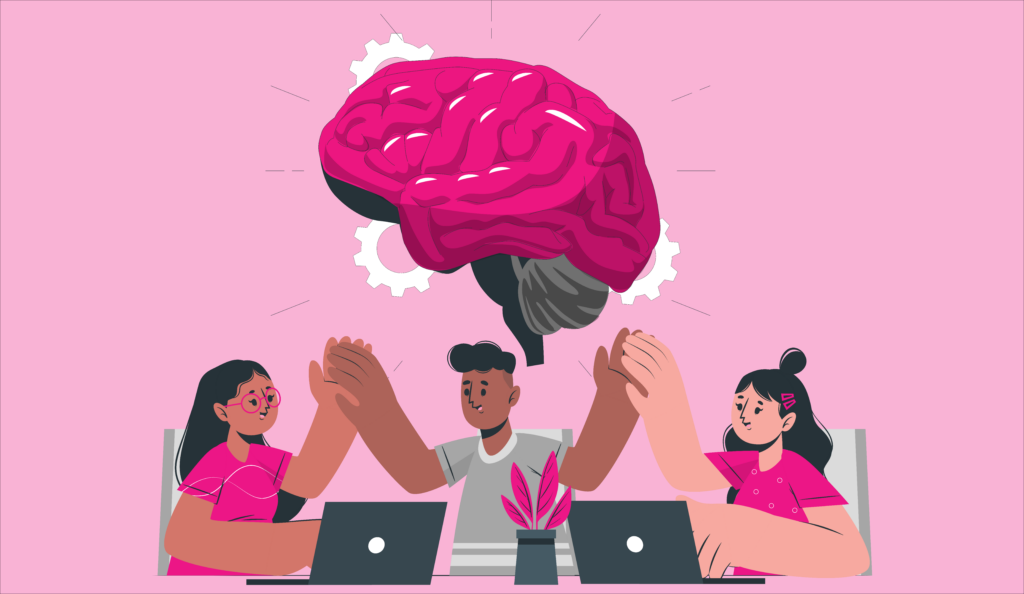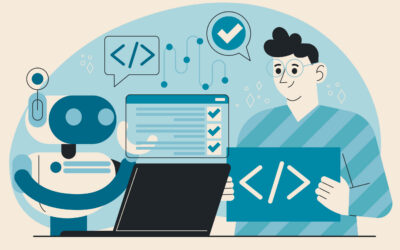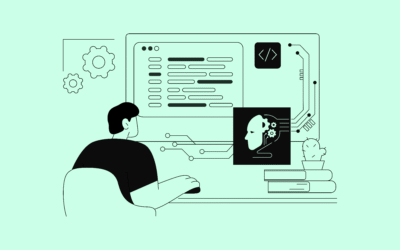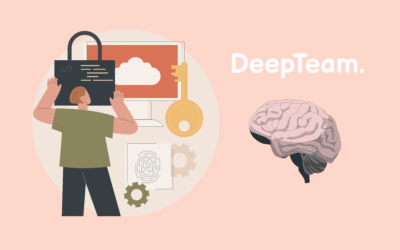Enterprises are investing in AI technologies and tools in a rapidly evolving AI landscape. However, as they adopt these technologies, they realize that initiatives will fail without staff who can effectively use AI tools. While many organizations deploy AI to increase efficiency, enhance customer experience, or improve business processes, they often struggle to apply it to specific business functions.
Many companies lack the in-house expertise or formal training to effectively implement and manage AI technologies, especially complex generative AI applications. This talent shortage puts organizations at risk of falling behind their competition. According to ISG research, 56% of enterprises consider a lack of skills and expertise the biggest barrier to adopting generative AI (GenAI). AI skills have become a competitive differentiator and essential for success.
While the organization assesses its teams’ AI skills and expertise and creates a skill development strategy, it may encounter barriers that delay progress, causing it to lose valuable time and opportunities. Outsourcing AI skills can accelerate results while employees undergo training and learn to integrate AI into their roles. By partnering with an AI development company, organizations can bridge the AI skills gap and scale back external resources as they build internal capabilities for the future.
In this article, we outline the most important AI skills development teams need to implement and scale generative AI solutions across the enterprise.
AI Skills in Demand
Incorporating generative AI into business functions requires a rapidly evolving AI skillset. Many companies report difficulties finding employees with AI-specific expertise, limiting their ability to leverage opportunities fully.
Adopting AI technologies without the necessary skills or an upskilling plan makes achieving goals challenging.
While software engineering fundamentals—such as knowledge of version control, testing, debugging, and programming in languages like Python, R, Java, and C++—are essential for building scalable and maintainable AI systems, they also serve as the foundation for advanced AI skills.
This section highlights the AI-specific skills required for a successful generative AI implementation.
Machine Learning (ML) Proficiency
- Ability to develop and implement machine learning models.
- Knowledge of algorithms such as supervised and unsupervised learning and reinforcement learning.
- MLOps and DevOps integration to streamline the lifecycle of machine learning models, from development to deployment, monitoring, and scaling.
Deep Learning Expertise
- Familiarity with neural networks, including convolutional neural networks (CNNs) and recurrent neural networks (RNNs).
- Proficiency in transformers and sequence models.
- Experience with frameworks like TensorFlow and PyTorch.
- Hyperparameter tuning and optimization for enterprise-scale performance.
Data Science and Analytics
- Data manipulation, analysis, and visualization with Pandas, NumPy, and Matplotlib.
- AI-enabled platforms supporting large-scale models, including vector databases and retrieval-augmented generation (RAG) techniques.
- Semantic search, embeddings, and knowledge graph integrations.
Generative AI and Prompt Engineering
- Mastery of prompt engineering techniques, including few-shot, chain-of-thought, and structured prompts.
- Implementation of agentic frameworks (e.g., LangChain, CrewAI) and reasoning models.
- Use of evaluation frameworks (evals), guardrails, and human-in-the-loop strategies.
Natural Language Processing (NLP)
- Tokenization, sentiment analysis, summarization, and language modeling.
- Adapting large language models (LLMs) like GPT and Claude for enterprise-specific use cases.
- Knowledge of AI voice stack and multimodal interfaces.
Computer Vision
- Object detection, classification, and image segmentation.
- Real-time deployment and optimization for business automation and quality control.
LLMOps and AI Infrastructure
- LLMOps practices for managing large language models in production environments.
- Model Context Protocol (MCP) integration for accessing external tools and data.
- Orchestrating GenAI pipelines using tools like Apache Airflow, enabling automation, observability, and resilience across ingestion, embedding, model invocation, and delivery.
- Continuous monitoring, performance tuning, and feedback loop design.
Graph-Based Reasoning and Data Integration
- Use of graph databases (e.g., Neo4j) to enhance reasoning and contextual decision-making.
- Integration of LLMs with structured and unstructured knowledge sources.
AI-Augmented Software Engineering
- Proficiency in using tools like GitHub Copilot, Cursor, Replit, and Claude Code.
- Understanding how to pair AI assistants with deep software engineering principles to improve development speed, quality, and collaboration.
- Async programming patterns and autonomous agent collaboration.
AI Ethics and Governance
- Ethical use of AI, bias detection, and fairness.
- Compliance with global frameworks (e.g., EU AI Act, NIST RMF).
- Implementation of governance policies and responsible AI practices.
Communication and Collaboration
- Explaining technical AI concepts to cross-functional stakeholders.
- Working in multidisciplinary teams with product managers, designers, and business leads—including agile teams that are structured for continuous feedback and iterative delivery.
Model Fine-Tuning and Optimization
- Experience in fine-tuning pre-trained models for specific tasks.
- Customizing AI solutions to fit unique enterprise environments, including iterative development and system integration.
- Ability to optimize model performance while reducing computational overhead.
Cloud Computing and AI Deployment
- Experience deploying AI solutions on major cloud platforms such as AWS, Azure, and Google Cloud.
- Designing cloud architecture with a focus on hybrid and multi-cloud strategy, supporting flexible and resilient deployments.
- Proficient in containerization (Docker), orchestration (Kubernetes), and serverless frameworks for scalable, portable AI applications.
- Managing AI-ready infrastructure including GPU/TPU acceleration, cost optimization, and decisions around on-premise vs. public cloud hosting.
Automation and AIOps
- Using AI to automate and optimize IT operations, including incident response, predictive maintenance, and resource management.
- Integration with observability platforms for autonomous operations.
- Reducing manual oversight through AI-driven tools that improve operational efficiency.
AI Product Management
- Skills in managing AI projects from concept to deployment.
- Proficiency in aligning AI initiatives with business goals and driving ROI from AI investments.
- Familiarity with sequencing AI projects for long-term business impact and strategic value.
Krasamo’s AI Skills Offering
Krasamo offers AI development services tailored to your organization’s needs and infrastructure. Our team provides the expertise to develop custom solutions based on your data and systems, helping address internal skill shortages with specialized AI knowledge. Whether through direct collaboration with our experts or by leveraging contractors and staff augmentation, we ensure that your AI initiatives have the right talent in place.
Partner with us to create POCs that test AI solutions in your environment while optimizing them for scalability and robustness. Your developers can participate in these projects, gaining hands-on experience and building expertise in AI technologies alongside our specialists. By working with Krasamo, you reduce the risk of investing resources in inefficient projects and gain access to expertise, along with advanced tools, frameworks, and technologies that may not be readily available in-house.
Strategic Alignment of AI Skills
As AI skills are crucial for immediate implementation, organizations must align their talent development with long-term AI strategies. A comprehensive Generative AI Strategy can help businesses integrate these skills into a roadmap for sustainable growth and intelligent transformation.












0 Comments